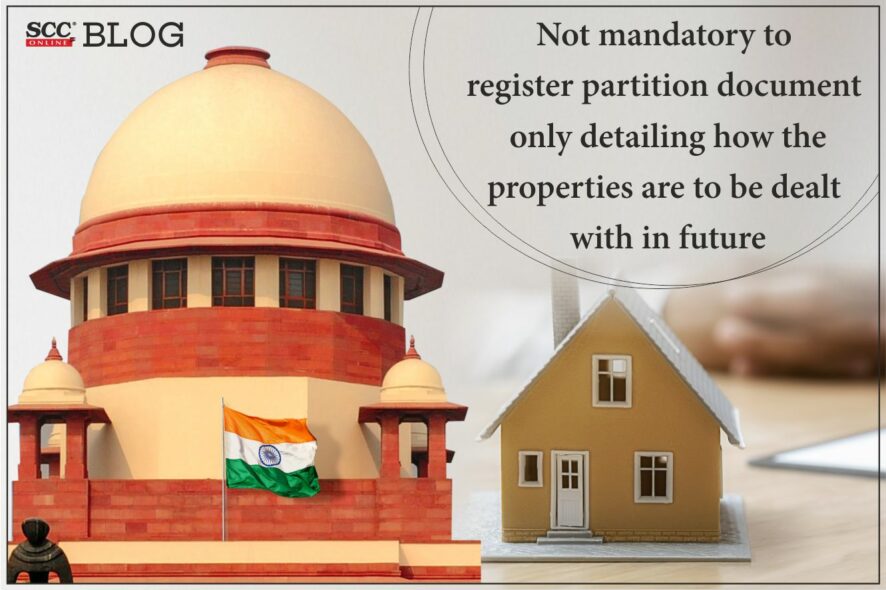Supreme Court: The bench of L. Nageswara Rao, BR Gavai and BV Nagarathna*, JJ has held that a document of partition which provides for effectuating a division of properties in future would be exempt from registration under section 17(2)(v) of the Registration Act, 1908.
The Court explained that the test in such a case is whether the document itself creates an interest in a specific immovable property or merely creates a right to obtain another document of title. If a document does not by itself create a right or interest in immovable property, but merely creates a right to obtain another document, which will, when executed create a right in the person claiming relief, the former document does not require registration and is accordingly admissible in evidence.
The Court was deciding a case where the panchayatdars had passed an award in the form of a resolution in relation to a family property. It had details as to how the properties had to be dealt with in future. There was no right created in any specific item or asset of the joint family properties in any person but the parties resolved to take certain actions in pursuance of a family arrangement.
The Supreme Court observed that the said award was a mere arrangement to divide the properties in future by metes and bounds as distinguished from an actual deed of partition under which there is not only a severance of status but also division of joint family properties by metes and bounds in specific properties. Hence it was exempted from registration under Section 17(2)(v) of the Act.
[K. Arumuga Velaiah v. PR Ramasamy, 2022 SCC OnLine SC 95, decided on 27.01.2022]
*Judgment by: Justice BV Nagarathna
Counsels
For appellant: Advocate V. Prabhakar
For respondent: Advocate K.K. Mani








My father and my uncle done un registered partition deed in 1994 of all ancestral properties, lateron my self and my brother done registered partion deed on 2002 on only the properties belongs to my father, please suggest whether the un registered partion after registration partion is valid. please give solution to my problem sir….